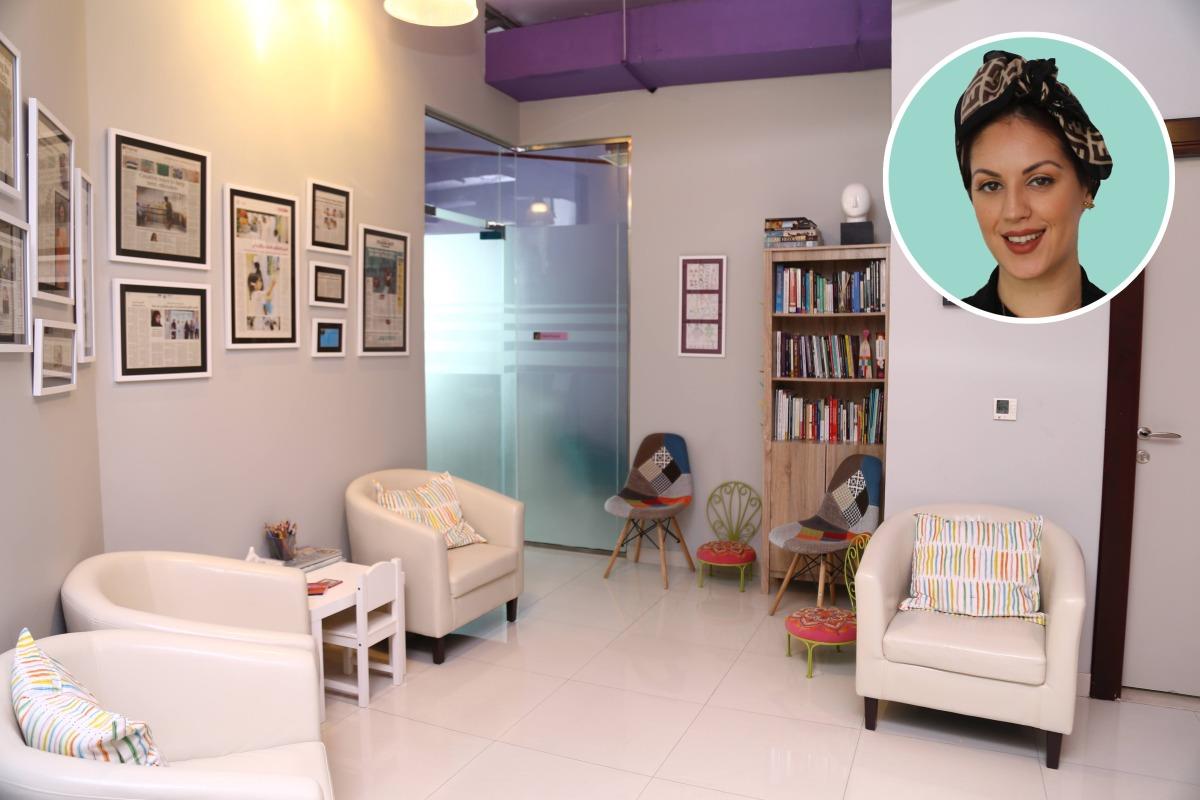Art Therapy Can Transcend Mental Health Barriers: Qatar Foundation Alumna
Doha, Qatar: Sara Powell has a passion for arts and therapeutic practices. As an alumna of Virginia Commonwealth University School of the Arts in Qatar, she credits her foundation course at the Qatar Foundation partner university for her love of art in all its forms.
“The marriage of art and psychology intrigues me,” she says, adding“Art can communicate and transcend cultural barriers, giving voice to those who might not have it otherwise. It allows them to share their feelings even without words, reframing them in a constructive and helpful way.”
After combining her two passions to take a master's degree in art psychotherapy, Powell realized she wanted to continue helping people, especially when she witnessed an increase in concentration and expression among students who partake in play therapy.
“Sometimes young children cannot process things happening in the world and need to learn how to express themselves safely,” Powell says.
“It can also help their caregivers understand their needs better."
“Psychoeducation on a community level can help with early intervention, and not only for children. There is still a lot of resistance and stigma around mental health, and for those dealing with mental health illnesses, art therapy is less threatening than alternative therapies.”
Following completion of her Master's, the idea for ATIC was born. A community driven center, ATIC aims to familiarize, promote, and provide art psychotherapy services through art and other expressive therapies like play, music and movement.
With her first clinic established in Singapore in 2010, opening a second clinic in Dubai was a natural progression for Powell when she moved back to the region in 2014, as was reaching out to Virginia Commonwealth University School of the Arts in Qatar (VCUartsQatar).
“Art therapy is becoming more known around the region – and Qatar is at the forefront of recognizing the importance of it,” she says.
“Working with VCUarts Qatar and Qatar Foundation through multidisciplinary teams is allowing me to focus on expanding our reach and making more holistic services readily available.”
“There needs to be more opportunities for neurodivergent people, including those with autism, attention-deficit hyperactivity disorder, those suffering with anxiety and mood disorders – as well as trauma, post-traumatic stress disorder, eating disorders such as bulimia, binge-eating and anorexia – to communicate their thoughts and feelings in their own creative way.”
Powell says that during sessions at ATIC, there are always a variety of art materials readily available, but it is not about the materials or aesthetic; clients don't need to know anything about art or art making to engage in art therapy – it's about the process, the relationship.
“It is about what it means to them, and what it symbolizes for them,” she said.“Their mode of expression is often telling of their specific challenges – for example, those with anorexia tend to gravitate towards controlled media, while those who suffer from bulimia use paint."
“The connection to art materials can highlight a relationship with food, so we pause, and problem solve, reflecting on healthier alternatives by focusing on the need to address how we feel.”
While Powell says ATIC works a lot with children, they also deal with a wide variety of clientele, from children, adolescents, adults, individuals, couples and groups to government agencies, hospitals, schools and corporations.
“We have recurring clients, but we try to help them be independent, acquiring life skills and developing resilience resulting in sustainable change” she says.“Sometimes we'll do a burst of intervention sessions, followed by maintenance visits when needed, even up to a year later. Hopefully through the use of the arts we can help them find their voice and assist in a mindful transformation.”
For anyone starting out along this path, Powell says working with people who have existing knowledge is extremely helpful.“You need the resources to be able to help your clients sustainably,” she noted.“You also need a good understanding of business structures and models, and the ability to communicate properly, through whatever means that may be.
“You need to be committed to engaging in ongoing research and training, and to be able to educate, support, and mentor your clients.”
And self-care should also be a priority, says Powell:“I'm a big believer in therapy. Even though it is mandated through our trainings, I also go to therapy to ensure best practice for clients and for my own wellbeing – and there should be no shame in this.”

Legal Disclaimer:
MENAFN provides the
information “as is” without warranty of any kind. We do not accept
any responsibility or liability for the accuracy, content, images,
videos, licenses, completeness, legality, or reliability of the information
contained in this article. If you have any complaints or copyright
issues related to this article, kindly contact the provider above.
Most popular stories
Market Research

- Japan Halal Food Market Size To Surpass USD 323.6 Billion By 2033 With A CAGR Of 8.1%
- BTCC Summer Festival 2025 Unites Japan's Web3 Community
- Red Lions Capital And Neovision Launch DIP.Market Following ADGM Regulatory Notification
- Thrivestate Launches“Fly Before You Buy” Program, Enabling International Buyers To Explore Dubai Before Committing
- Quinoa Seeds Market Size To Expand At A CAGR Of 5.5% During 2025-2033
- The Dubai Insiders Club Expands Access To Australia And Asia Amid Surge In International Investor Demand






















Comments
No comment